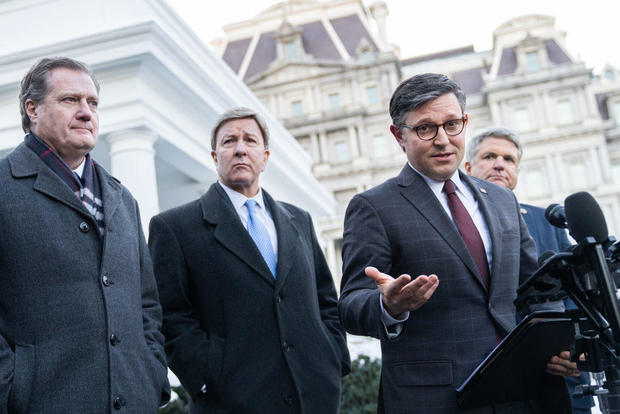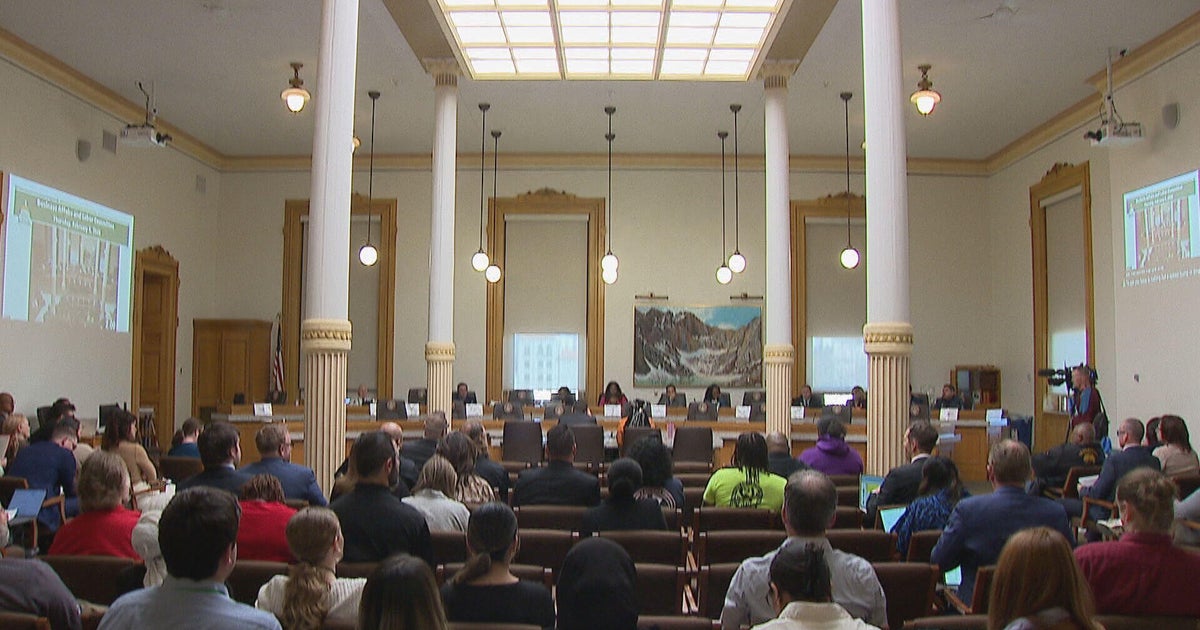Congress approves short-term funding bill to avoid shutdown, sending measure to Biden
Washington — Congress approved a stopgap measure to keep the government funded through the beginning of March, successfully avoiding a partial shutdown that would have otherwise taken effect Saturday morning.
The House cleared the continuing resolution in a bipartisan 314 to 108 vote Thursday afternoon. The Senate voted 77 to 18 to approve it earlier in the day.
"We have good news for America — there will not be a shutdown on Friday," Senate Majority Leader Chuck Schumer, a New York Democrat, said on the Senate floor ahead of the vote. "It's precisely what Americans want to see — both sides working together and governing responsibly. No chaos, no spectacle, no shutdown."
The legislation extends funding at current levels for some government agencies through March 1, and others through March 8. The two-step deadline is an extension of the current deadline originally conceived by House conservatives to avoid a massive omnibus spending bill to fund the government. But many of those members on the Republican conference's right flank opposed the stopgap measure to keep the government funded.
Some House conservatives met with Speaker Mike Johnson, a Louisiana Republican, on Thursday to attempt to add a border security amendment to the continuing resolution, briefly throwing its passage into question. But Johnson's team quickly said the plan had not changed and that the House would move ahead with its vote Thursday.
Facing opposition from hard-right House members and a razor-thin GOP majority, Johnson again had to rely on Democrats to keep the government funded.
He faced a nearly identical situation in November, when he also needed Democrats to pass a short-term funding extension. That came just weeks after Johnson was elected to replace Kevin McCarthy, who was ousted for doing the same thing — working across the aisle to keep the government open. But for Johnson, just days into his speakership, enough good will seemed to exist among his conference to allow him to hold onto his gavel.
Whether the same holds true this time around remains to be seen. Just before the vote on the continuing resolution, the conservative House Freedom Caucus urged Republicans to vote against its passage.
"Speaker Mike Johnson should walk away from his agreement with Senate Majority Leader Schumer and pass an appropriations package that meaningfully reduces spending year-over-year and secures our southern border. That is what winning looks like," the House Freedom Caucus said in a statement, referring to an agreement between congressional leaders on an overall spending level for annual appropriations bills.
The last-minute bipartisan deal between House and Senate leaders on overall spending left the appropriations committees with little time to write and pass the bills, putting pressure on Congress to rely on another short-term funding extension to avert a shutdown.
Alejandro Alvarez and Jaala Brown contributed reporting.




